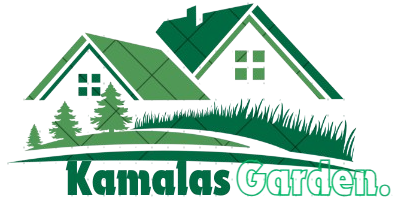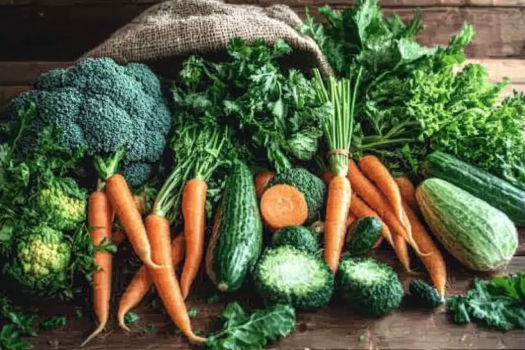Why Start Gardening with Vegetables?
Starting a vegetable garden is one of the most rewarding hobbies for beginners. It’s cost-effective, promotes sustainability, and fills your kitchen with fresh, homegrown produce.
Benefits of Growing Your Own Food
- Healthier Eating: Homegrown vegetables are free from harmful chemicals, ensuring fresher and healthier meals.
- Sustainability: Reduce your carbon footprint by growing food locally.
- Cost Savings: Minimize grocery bills by cultivating your own produce.
Building Confidence as a New Gardener
Gardening teaches patience and responsibility. Watching your seeds sprout and flourish builds confidence and encourages you to explore more advanced gardening techniques over time.
Getting Started with Beginner Gardening
Before diving in, setting the right foundation is crucial for a successful vegetable garden.
Choosing the Right Space for Your Garden
- Sunlight: Ensure your garden gets at least 6-8 hours of sunlight daily.
- Accessibility: Choose a spot close to your home for convenience.
- Soil Quality: Opt for nutrient-rich, well-draining soil to encourage growth.
Essential Tools for a Beginner Gardener
Invest in the basics:
- Gardening gloves
- Hand trowel
- Pruning shears
- Watering can
- Garden hoe or rake
Tips for Selecting Beginner-Friendly Vegetables
Choose vegetables that:
- Grow quickly
- Require minimal maintenance
- Thrive in your local climate
Explore the easiest vegetables to grow for inspiration.
10 Best Vegetables for Beginner Gardeners
1. Looseleaf Lettuce – The Easiest Salad Staple
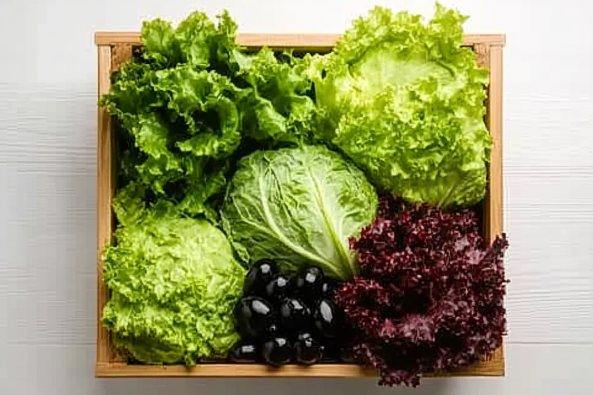
Looseleaf lettuce grows quickly and can be harvested multiple times. Ideal for small spaces, it thrives in containers and garden beds alike.
2. Radishes – Quick and Satisfying Harvest
Radishes mature in as little as 3-4 weeks. Their crunchy texture and spicy flavor make them a great addition to salads and snacks.
3. Bush Beans – Low-Maintenance and High Yield
Bush beans are prolific producers that require minimal care. They’re perfect for small gardens and don’t need staking.
4. Cucumbers – Perfect for Fresh Snacking
Cucumbers are fast growers that love warm weather. Train them to climb a trellis for space-saving growth.
5. Peas – Sweet Treats for Cool Seasons
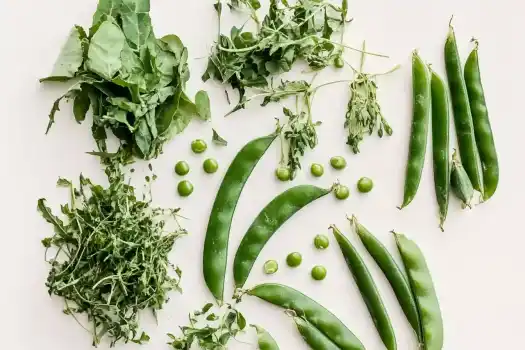
Peas are cold-hardy and can be planted early in the season. Enjoy their sweet pods fresh or cooked.
6. Summer Squash – A Fast-Growing Favorite
Summer squash, like zucchini, grows quickly and produces abundant harvests. It’s a versatile vegetable for cooking.
7. Kale – Nutrient-Packed and Resilient
Kale is a hardy green that thrives in cool weather. Packed with vitamins, it’s a superfood you’ll love growing.
8. Turnips – Dual Purpose Roots and Greens
Turnips provide both edible roots and nutrient-rich greens. They’re easy to grow and adapt well to various climates.
9. Cherry Tomatoes – Sweet and Prolific Producers
Cherry tomatoes are beginner-friendly and thrive in containers. Their sweet, juicy fruits are perfect for snacking.
10. Scallions – Small Space Superstars
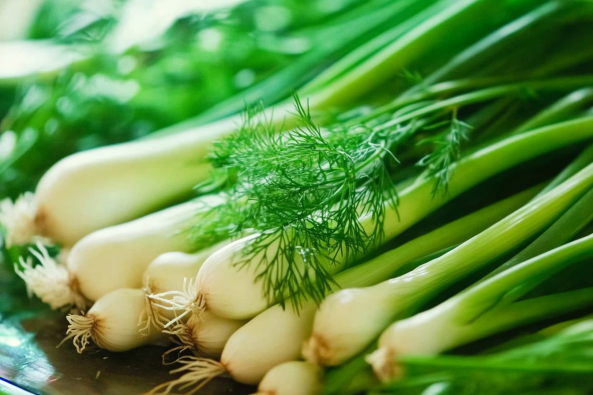
Scallions are ideal for small spaces and grow quickly. They add flavor to many dishes and regrow after harvesting.
Discover more beginner-friendly vegetables for your garden.
Tips & Tricks to Keep Gardening Fun
Gardening doesn’t have to be tedious. Here are ways to make it enjoyable:
Create a Gardening Schedule
Stick to a routine for watering, weeding, and harvesting. Consistency keeps your plants thriving and your garden manageable.
Experiment with Container Gardening
Try growing vegetables in containers or raised beds. This approach is flexible, especially for limited spaces.
Get the Family Involved
Gardening can be a family activity. Involve kids in planting seeds or harvesting, making it a fun and educational experience.
Use Organic Practices for Healthy Plants
Opt for natural fertilizers and pest control methods to keep your garden eco-friendly and your vegetables chemical-free.
Common Mistakes Beginner Gardeners Should Avoid
Avoiding common pitfalls ensures your gardening experience remains rewarding:
Overwatering vs. Underwatering
Find the right balance by checking soil moisture regularly. Overwatering can lead to root rot, while underwatering stresses plants.
Planting at the Wrong Time
Research planting seasons for your chosen vegetables. Starting too early or late can impact growth and yield.
Ignoring Soil Quality
Test your soil’s pH and nutrient levels. Amend poor soil with compost or organic matter for healthier plants.
Additional Resources for Beginner Gardeners
Expand your gardening knowledge with these helpful resources:
Best Tools for Gardening Success
Invest in quality tools that make gardening easier and more efficient.
How to Start Composting at Home
Composting enriches soil and reduces waste. Learn the basics to create your own compost pile or bin.
Easy DIY Garden Hacks
Discover creative hacks like using egg cartons for seedlings or coffee grounds as fertilizer to simplify your gardening tasks.
Check out these DIY gardening hacks for more inspiration.
FAQs About Beginner Gardening
What Are the Best Vegetables to Grow in Small Spaces?
Scallions, radishes, and looseleaf lettuce are perfect for compact gardens and containers.
How Long Does It Take for Vegetables to Grow?
Growth time varies by vegetable. For example, radishes are ready in 3-4 weeks, while tomatoes may take 2-3 months.
Can I Grow Vegetables Without a Yard?
Yes! Container gardening allows you to grow vegetables on balconies, patios, or even windowsills.
Conclusion: Enjoy the Journey of Growing Your Own Vegetables
Gardening is a fulfilling hobby that brings joy, health benefits, and delicious rewards. Start small, learn from your experiences, and soon, your garden will be flourishing with vibrant vegetables.
